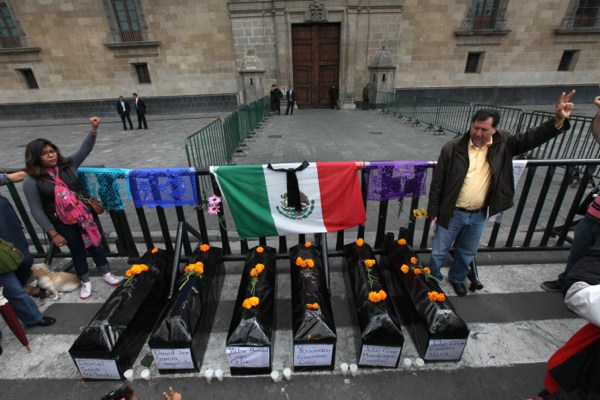Forty-three students are still missing in Mexico. That crisis has gripped the country since September, but it’s easy to forget that it followed another atrocity: the suspected killing of 22 gang members, execution-style, in late June by soldiers in a dingy warehouse outside San Pedro Limon, a small town south of Mexico City. The story of what happened in that warehouse shifted more than once, from a shootout to allegations of a massacre and the government’s promise of an investigation. Charges were filed; then Mexican authorities said they weren’t.
But earlier this week, three Mexican soldiers were formally charged with aggravated homicide in a civilian court over the deaths of eight people. Seven soldiers in all were charged with “actions improper to the public service.” That a civilian judge issued the charges seems like a positive sign. As I wrote last month, “the case could, in its best-case scenario, determine how much the judiciary can in fact assert itself over the military in Mexico.”
Such military abuses are supposed to be tried in civilian courts, according to a 2013 Mexican Supreme Court ruling, but critics say that shift has been slow, and the military still acts with impunity. But even with the charges, the story isn’t over. A lieutenant who authorities had said was under investigation wasn’t named in court. And Mexico’s National Human Rights Commission, which has said that soldiers executed at least 15 of the 22 people killed in the warehouse, issued a report on Oct. 21 alleging an attempted cover-up by military and civilian authorities.

